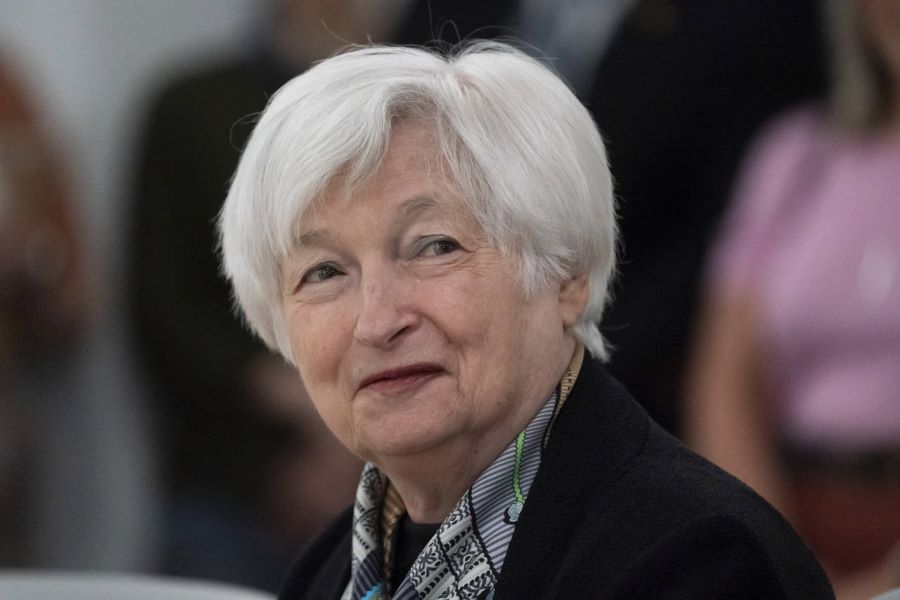Economy
Yellen Cautions China’s Industrial Surge Is Distorting Global Economy
In an effort to confront China’s burgeoning industrial capacity, US Treasury Secretary Janet Yellen is gearing up for a crucial visit to the country. Yellen’s mission aims to address the ramifications of China’s industrial expansion. This expansion has been reverberating throughout the global economy, distorting prices and production patterns.
Urgent Call to Address Overcapacity
Yellen’s upcoming visit comes amid growing concerns over China’s overcapacity. This overcapacity is particularly evident in sectors such as steel and aluminum. Additionally, it’s prevalent in emerging industries like solar energy, electric vehicles (EVs), and lithium-ion batteries. These sectors have witnessed a surge in production, propelled by China’s robust industrial policies and state support. This has reshaped global trade dynamics.
Symbolism of Solar-Cell Manufacturing Facility Reopening
Highlighting the urgency of the situation, Yellen emphasized, “Inflated industrial output in China disrupts global pricing and production trends. This negatively affects American companies and workers, as well as those worldwide,” according to Barron’s report.
The reopening of a US solar-cell manufacturing facility in Norcross, Georgia, serves as a symbolic backdrop for Yellen’s message. This facility, shuttered in 2017 due to the influx of low-cost imports, underscores the challenges faced by American industries in the face of China’s industrial prowess. Yellen aims to showcase the Biden administration’s commitment to revitalizing the US renewable energy sector. This positioning it as a competitive player on the global stage.
Consequences of China’s Industrial Policies
China’s industrial policy legacy has not been without its consequences. While it has fueled economic growth and employment within China, it has also led to disruptions in industries elsewhere. This has prompted concerns from policymakers worldwide.
Tensions in US-China Relations
As Yellen prepares for her visit, tensions between the US and China remain palpable. The two economic powerhouses have been engaged in high-level diplomacy since the resumption of talks. However, challenges persist, particularly in addressing issues related to trade imbalances and market distortions.
International Scrutiny and EU Response
China’s focus on bolstering its manufacturing sector, particularly in areas like electric vehicles, batteries, and renewable energy, has raised eyebrows internationally. The European Union, citing evidence of unlawful financial support from Beijing, has recently moved towards imposing additional tariffs. These would apply specifically to Chinese EVs entering the bloc.
Biden Administration’s Commitment to Fair Trade Practices
Yellen’s visit to China underscores the Biden administration’s commitment to addressing these challenges head-on. Through dialogue and engagement, Yellen seeks to convey the importance of fair trade practices. Additionally, she emphasizes the necessity of a level playing field in the global economy.
Global Implications of Yellen’s Diplomatic Efforts
In the wake of a shifting geopolitical landscape and economic uncertainties, Yellen’s diplomatic efforts carry significant weight. As she prepares to engage with Chinese officials, the world watches closely. There’s anticipation surrounding the outcomes of these critical discussions. They hold implications for the future of global trade and economic stability.
Acquire a 2-year subscription to The Wall Street Journal: Receive daily delivery six days a week and access WSJ Digital. Stay fully informed about finance, politics, healthcare, and global events with this comprehensive package. Delve into expert insights and reliable evaluations to broaden your perspective. To purchase a subscription, call WSJ Cell Phone: (800) 581-3716

